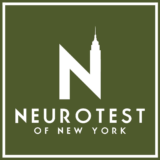The last few years have seen many new effective prescription medications hit the market aimed at treating various neurological disorders. However, many people are still reluctant to use these new therapies due to their fear of adverse side effects. In my practice, I am repeatedly asked about complementary or alternative medicine treatments that can help. Botanical medicine incorporates the use of essential oils found in plants to treat a multitude of disorders. Which essential oils for neurological conditions are effective? Are essential oils safe? Let’s take a closer look at essential oils for neurological disorders.
What Are Essential Oils
Essential oils (EOs) are also referred to as “volatile oils” or “aromatic oils.” EOs can be found in flowers, leaves, bark, wood, seed, fruit or peel. It is the essence or fragrance of these plant components and consists of terpenes/terpenoids, quinines, benzene compounds, and aromatic/aliphatic esters and alcohol.
You can use essential oils topically on the skin, aromatherapy, or occasionally taken by mouth. EOs have been used as antibacterials, antifungals, anti-inflammatory, and pain relief.
Are Essential Oils Safe
The Food and Drug Administration (FDA) does not regulate the use of essential oils for aromatherapy. Essential oils may be safe as no major adverse events have been reported. Local skin irritation and contact dermatitis may be seen if you apply essential oils to your skin. Of note, recent small studies have linked lavender and tea tree oils as endocrine disrupters mimicking the effects of estrogen.
Uses For Essential Oils
You may already be using essential oils and not even know it. Essential oils can be found in cosmetics, perfumes, soap, detergents, flavoring food, dental products, and Vicks Vaporub.
Many neurological disorders may benefit from the use of essential oils.
- Alzheimer’s dementia – EOs can act as cholinesterase inhibitors and free radical scavengers.
- Attention and concentration – Eucalyptus, lavender, and rosemary have been reported to improve attention and concentration in small studies.
- Migraine headache – Reports show benefits for treating acute migraine attacks with lavender, peppermint, rosemary, and eucalyptus oils.
- Sleep – Improvement in sleep has been seen in studies with lavender, bergamot, camomile, and cedarwood oils.

